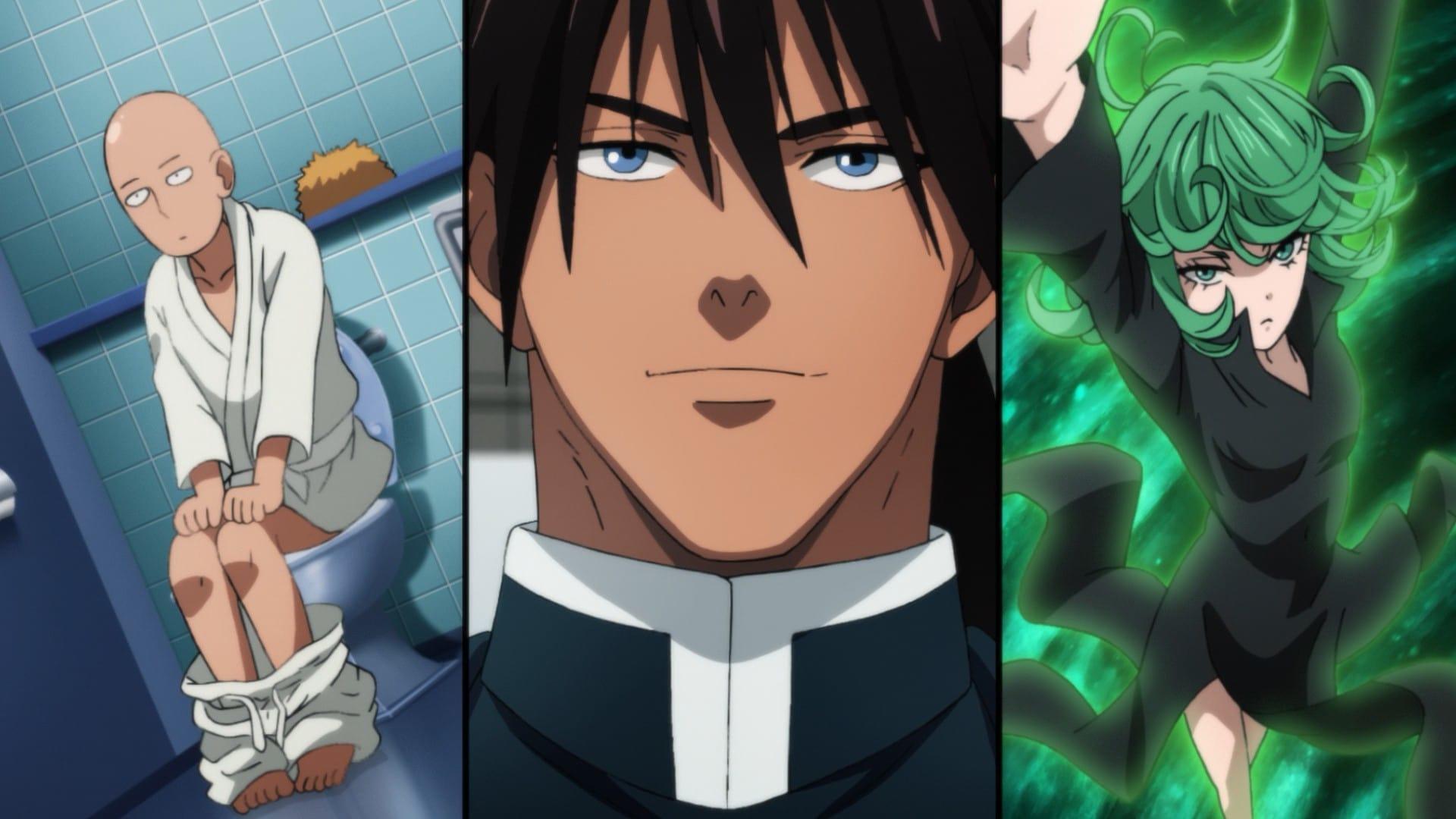Remember that exhilarating feeling of watching Saitama obliterate his opponents in One Punch Man Season 1? The sheer power, the comedic timing, and the captivating animation fueled our desire for more. And then, Season 2 arrived. While the animation suffered some criticism, one element remained consistent: the phenomenal dub. It wasn’t just about bringing the characters to life; it added an extra layer of humor, drama, and depth, making the experience even more immersive. Why was the dub so impactful, and how did it contribute to the overall enjoyment of this dynamic anime? Let’s take a deep dive into the world of One Punch Man Season 2 dub and uncover the magic behind it.

Image: automasites.net
The concept of an anime dub may seem simple, but it’s a complex art form. It’s about capturing the essence of a story and the characters within it, giving them a voice and personality that resonates with the audience. The One Punch Man Season 2 dub, however, went beyond the basic. It embraced the source material’s comedic elements, allowing the voice actors to unleash their creative flair, bringing Saitama’s deadpan sarcasm and Genos’s unwavering enthusiasm to life.
Unveiling the Magic: The Voice Actors
The success of any dub hinges on the voice actors. One Punch Man Season 2 was fortunate to have a cast that not only nailed the characters but also brought a unique energy to the table. Let’s look at some of the key players:
- Saitama (Max Mittelman): Mittelman’s portrayal of Saitama was nothing short of iconic. He masterfully captured the protagonist’s nonchalant yet powerful nature, delivering Saitama’s signature lines with a mix of boredom and undeniable strength.
- Genos (Robbie Daymond): Daymond’s voice perfectly reflected Genos’s unwavering dedication to Saitama and his relentless quest to get stronger. His passionate delivery and unwavering enthusiasm added a layer of excitement to every scene Genos was involved in.
- Speed-O’-Sound Sonic (Aaron Dismuke): Dismuke brought a sardonic wit and an air of arrogance to Sonic, perfectly encapsulating the villain’s cocky persona. His voice added a touch of playfulness to Sonic’s schemes, making him a more engaging character.
Beyond the Words: The Emotional Connection
The dub wasn’t merely about accurately translating the Japanese dialogue. It was about creating an emotional connection with the audience. The voice actors infused their performances with nuances, adding layers to the characters that weren’t always visible in the original. For instance, Saitama’s deadpan delivery often conveyed a sense of frustration with the mundane nature of his battles, while Genos’s lines underscored his constant struggle to live up to Saitama’s strength.
The Dub, a Catalyst for Deeper Understanding
The dub had a significant impact on how viewers perceived the story. By adding emotional depth to the characters, it allowed viewers to connect with them on a deeper level. Saitama’s seemingly emotionless exterior was carefully portrayed to reveal his underlying humanity, while Genos’s unwavering devotion to his mentor was made even more poignant through his voice actor’s performance. These emotional layers created more compelling character arcs, providing a deeper understanding of their motivations and struggles.
One Punch Man Season 2 dub demonstrated the power of voice acting. It transcended the borders of language, allowing viewers to connect with the characters on an emotional level. It injected humor, drama, and depth into the story, enriching the overall viewing experience. It was a testament to the power of dubbing to not just translate dialogue but to bring a story to life in a way that resonates deeply with audiences.
![One-Punch Man: Season 2 [DVD] - Best Buy](https://pisces.bbystatic.com/image2/BestBuy_US/images/products/3507/35072926_so.jpg)
Image: www.bestbuy.com
The Dub and its Impact on the Anime
The English dub for One Punch Man Season 2 became a topic of heated debate among fans. Some felt it was a faithful adaptation of the source material, while others argued it strayed too far from the original. This debate underscores the transformative power of dubbing and its ability to create new interpretations of a story. It sheds light on the complex relationship between the original source material and its localized versions, highlighting the subjectivity of artistic interpretation.
Why the Dub Matters
The success of the One Punch Man Season 2 dub lies not only in its technical execution but also in its ability to connect with a global audience. It’s a bridge between cultures, allowing viewers who may not understand Japanese to experience the magic of anime firsthand. It also showcases the talent and artistry of voice actors, highlighting the vital role they play in bringing animation to life.
Beyond the Screen: The Lasting Impact
The dub of One Punch Man Season 2 was more than just a soundtrack; it was a catalyst for conversation, debate, and appreciation. It ignited a passion for anime among newcomers and gave seasoned fans a new perspective on a beloved story. It served as a reminder that voice acting, a seemingly simple art form, can have a profound impact on the way we experience stories.
One Punch Man Season 2 Dub
Go Beyond the Surface: Embrace the Power of Dubbing
As we delve deeper into the world of anime, it’s important to recognize the value of dubbing. It’s a powerful tool that can shape our understanding of a story, connect us to characters, and create an immersive experience. The dub of One Punch Man Season 2 was a testament to this power, offering a unique and meaningful interpretation of a beloved anime. So don’t just watch the show, listen to it and embrace the impact of a good dub.






